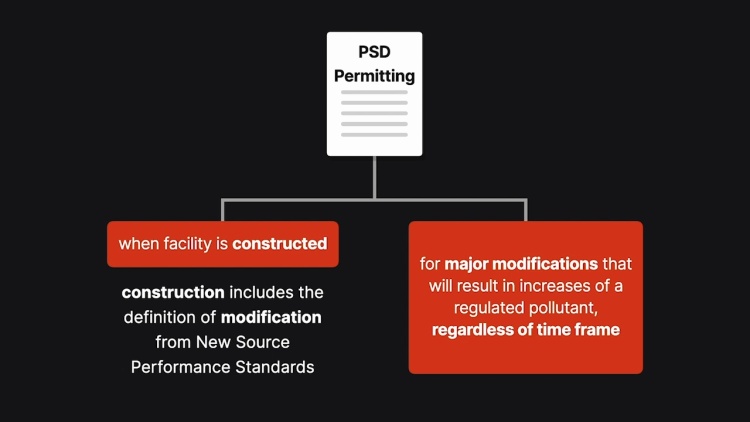Environmental Defense v. Duke Energy Corp.
United States Supreme Court
549 U.S. 561 (2007)
- Written by Craig Conway, LLM
Facts
In the 1970s, Congress amended the Clean Air Act (CAA) to include two air pollution control mechanisms: New Source Performance Standards (NSPS) and Prevention of Significant Deterioration (PSD) provisions. Environmental Protection Agency (EPA) regulations implementing NSPS provided that any physical or operational change to an existing facility that resulted in an increased emissions rate was deemed to be a “modification” and required the facility to use the best technology in making the modifications. Another part of the CAA amendments required a PSD permit to be issued by the EPA before a major emitting facility could be constructed or modified as defined in the NSPS provisions. Duke Energy Corporation (Duke) (defendant) updated its coal-fired electric generating units at eight plants to extend the overall life of the plants but also to allow the plants to run longer each day. Environmental Defense and others (plaintiffs) filed suit in federal court against Duke alleging it violated the CAA by not obtaining permits for its “modifications” as required by the CAA. Duke argued that its modifications did not result in increased hourly emissions and, thus, it was not subject to the PSD permitting requirements. The district court agreed and granted summary judgment to Duke. The court of appeals affirmed. Plaintiffs appealed. The U.S. Supreme Court granted certiorari to review.
Rule of Law
Issue
Holding and Reasoning (Souter, J.)
What to do next…
Here's why 905,000 law students have relied on our case briefs:
- Written by law professors and practitioners, not other law students. 47,100 briefs, keyed to 995 casebooks. Top-notch customer support.
- The right amount of information, includes the facts, issues, rule of law, holding and reasoning, and any concurrences and dissents.
- Access in your classes, works on your mobile and tablet. Massive library of related video lessons and high quality multiple-choice questions.
- Easy to use, uniform format for every case brief. Written in plain English, not in legalese. Our briefs summarize and simplify; they don’t just repeat the court’s language.





